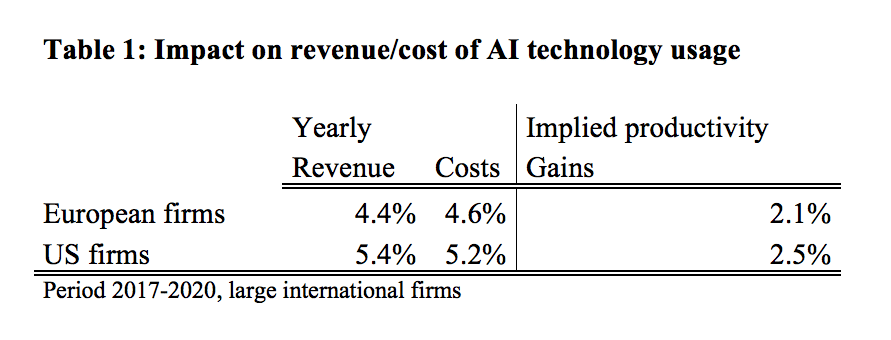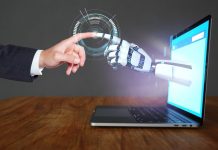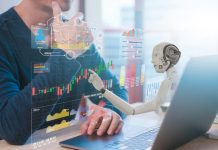By Jacques Bughin, Francis Hintermann and Philippe Roussière
Whether it’s a global pandemic, a major geopolitical conflict nearby, or now a rise in inflation that slowly resembles that caused by the oil shock of the 1970s, this significant turbulence points to a higher risk of economic recession. The emerging consensus among economists is that the odds of a recession are overwhelming in the eurozone by end of 2022. Although the United States may be able to escape with a serious slowdown, the China growth engine has never been so fragile.
Roaring out of crisis
The risk of recession is a clear warning that companies need to prepare for much greater resilience in the months ahead. But while recessions often hurt, it’s often because companies are ill-prepared. Previous crises actually teach us an important lesson, which is that a crisis is also a unique time to reset the clock; and for the best prepared firms, it is a strategic opportunity to weather the storm and quickly rebound beyond the previous performance trajectory.
Systematic studies, such as that conducted by Professor Gulati of Harvard Business School, have analysed no fewer than three global recessions (the 1980 crisis, the 1990 downturn, and the bursting of the dot-com bubble in 2000) and found that recession can make most companies underperform. A small group of companies goes bankrupt, is sold off, or goes back into private ownership. But, at the other extreme, an equal proportion of companies emerge from the crisis generating higher profitability than their peers and stronger than their pre-crisis performance. A recent study some of us conducted a few months back to assess how firms came out of the pandemic also confirms that roughly one in five companies has managed to navigate superbly through the pandemic-induced crisis and, barely two years after the start of the pandemic, are now exhibiting performance records significantly better than pre-crisis.
How AI is creating crisis-proof companies
Emerging from a crisis stronger than before is usually linked to a common set of capabilities such as strong agility and ability to innovate. But one capability of special relevance, in order to almost literally “roar out of the recession”, is the right investment and exploitation of (IT and digital) technology.
It is well known that investment in digital technology was a powerful business response during the pandemic. But the rationale may have been specific to the crisis, i.e., a solution to circumvent social distancing. Here, we’re talking about a more fundamental and more general reason, namely that technology allows companies to reduce costs, while fostering new ways to compete and rebuild a new competitive advantage.
In addition to this dual benefit of digital, a new set of technologies, artificial intelligence, has been anticipated to provide material revenue growth and cost reduction. From venture capital firms doubling their funding on AI to a major boost in the number of deep machine learning patents in recent years and the production of thousands of AI case studies, this prediction is proving to be solid, as AI expands efficiencies widely (e.g., through work automation), prunes inefficiencies in operations besides typical G&A costs, and creates major new opportunities, whether it is new drug innovation in the pharmaceutical sector, autonomous driving in the automotive sector, or intelligent operations management.
We have recently analysed our firms that were using artificial intelligence and taking into consideration the risk of recession. We are finding that AI technologies do the jobs that are sorely needed in times of crisis. For large companies vested in AI, the share of companies’ revenue as well as costs that is “AI-influenced” more than doubled between 2018 and 2021 and are expected to roughly triple between 2018 and 2024. Under a few reasonable assumptions, this AI diffusion translates into a profitability gain per year of 2-3 per cent (see table 1), or a rate at least twice as fast as the annual rate of firm productivity in the European Union in the last decade.
It is not only that this rate is three times the average contribution of traditional IT to total productivity growth witnessed in the developed economies in the last twenty years. It is also, to put it another way, that the most talented AI-using company is showing twice as much profit after 10 years compared to its peers. And finally, the 2 per cent growth momentum is typically the level needed to hedge against the long-term adverse effects of crises.
The central role of AI in this productivity surge is also quite special. Regarding cost efficiency, for example, AI drives automation as a selective way to substitute repetitive tasks by more effective technology. This process is thus not one of laying off employees across the board, but rather it is an optimisation of tasks that leads to better-quality jobs. Likewise, AI technologies support superior asset performance management, such as preventive maintenance, that reduce cash costs to new investment. Regarding revenue enhancement, AI is especially powerful as a support to a strategic and innovative/disruptive approach. Most AI-enabled revenue is concerned with new innovations in business models, a new shaping of the ecosystem, and new ways to compete. AI is especially powerful when it comes to supporting customer intelligence, customer servicing, or customer sales and marketing personalised recommendations. Most of those cases are even more attractive in times of crisis, because crisis makes customers’ commitment more volatile, or makes it critical to extend the useful life of assets rather than spending cash on failing assets.

The European opportunity
The “icing on the cake” is also that a few companies are pushing the boundaries of what AI can do for business performance. Not only are these companies combining innovative strategies based on a robust AI architecture, strong AI culture, and workforce training, but they are also using 30-40 per cent more AI use cases than their peers. According to our calculations, the consequence of better technology utilisation and more use cases allows these companies to achieve twice as much productivity gain as the average company.
While European companies are currently the most exposed to an economic downturn, the above implies that they have a vested interest in leveraging AI for resilience. In the past, Europe has lagged behind the US and China in AI, but Europe is taking off. Startups and entrepreneurs are catching up. As one example, Snowflake Europe is responding with UiPath; in one battle on AI, Europe is leaping forward with a lead vision on Quantum Computing; and Europe is also setting a regulatory framework that pushes the critical relevance of responsible AI.
Further to this, we can add that large, European-headquartered companies are also as good as peers from Asia and North America in mastering the full potential of AI. In fact, the estimated productivity gains from using AI at scale by top US and European companies is roughly the same level, at about 4.5 per cent per year.
These AI leaders are an elite, but not a small group, for example about 12 per cent of total AI engaged firms. More importantly, they are emerging as the same proportion of AI users as in the US in many sectors. In particular, Europe shows the way in sectors such as automotive, retail, life science, and energy. Other European companies should take note and copy their AI journey for further performance and for the additional benefit of hedging against the odds of a possible recession.
About the Authors

Jacques Bughin is a professor of Management, Chaire Gillet of Management Practice, at the Solvay Brussels School of Economics and Management at Université libre de Bruxelles (ULB), and, among others, a former Director of McKinsey and of the McKinsey Global Institute. He advises Antler and Fortino Capital, two major VC/PE firms, and serves on the board of multiple companies.

Francis Hintermann is Global Managing Director of Accenture Research. Accenture Research is an Accenture entity that identifies and anticipates game-changing business, market, and technology trends through thought leadership and strategic research.

Philippe Roussière leads Innovation and AI at Accenture Research. He is a seasoned leader and innovator with over 25 years serving in a variety of research leadership roles on client-focused and thought leadership projects. He advises on using innovative methods like machine learning/NLP, economic modelling, data visualisation, and hybrid experiential research platforms.





































